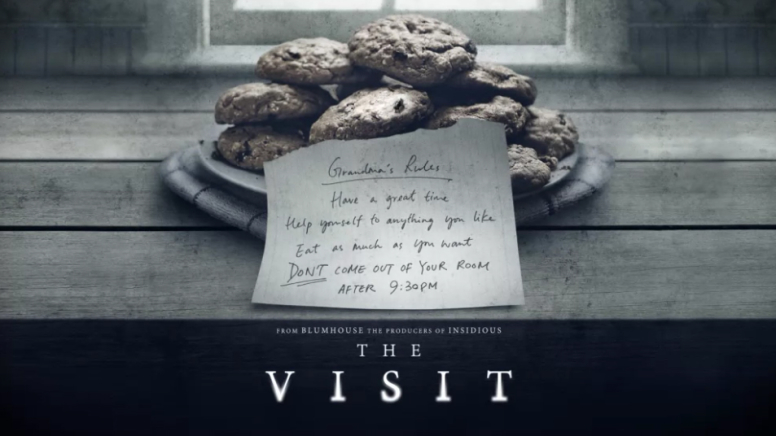I’ve watched M. Night Shyamalan’s 2015 The Visit three times, and I’m always left wiping tears from my eyes. It’s a masterpiece. It’s a problem for many viewers, I know—if you’re a slicing-up-eyeballs fan, it’s not enough (and nothing will ever be enough for you, you bunch of masochistic weirdos), and if you want more straight-ahead redemption-through-terror stories like Sixth Sense or Signs, it’s disappointing and uncomfortable. What you need to do is adjust; Shyamalan knows full well that truth, beauty, and goodness lie at the center of existence. He also knows that there is great evil between it and us. Like that quote from St. Cyril at the beginning of Flannery O’Connor’s A Good Man Is Hard To Find: salvation is yours, but you must pass by the dragon first. Emphasis added. You must pass by the dragon first, people.
See, The Visit isn’t simply about a couple of kooky old people, whose actions lead to violence and chaos. It’s all about what can happen when anger controls your life, and there is no forgiveness–the result isn’t merely strained relations and isolation. Shyamalan gets that. The festering refusal to forgive necessarily feeds wrath and, by steady footfalls, leads to murder and anarchy, given enough time. That’s exactly what happened in Africa in the 1990s, between the Hutus and the Tutsis. Not just harsh words and separation, but genocide. That’s where unchecked wrath goes, and we can’t have illusions about it.
Shyamalan is a man of goodness, truth, and beauty, above all—that’s what makes him the modern master of horror, and the only real heir to Alfred Hitchcock. He knows we are all actors on a stage built to lead to heaven, if we choose it, however terrible may our journey be.
